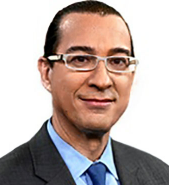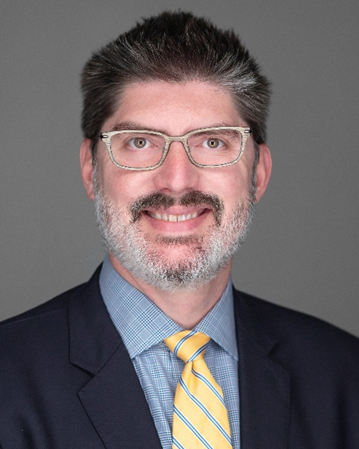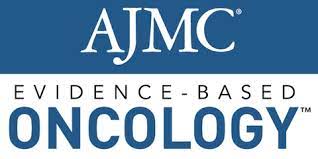- Center on Health Equity and Access
- Clinical
- Health Care Cost
- Health Care Delivery
- Insurance
- Policy
- Technology
- Value-Based Care
T-Cell Exhaustion in CLL: Allogeneic CAR T Trial Reaching Patients With Unmet Need
"Off the shelf" CAR T-cell therapies could offer a solution in chronic lymphocytic leukemia, where T-cell exhaustion creates treatment challenges. This article will appear in the May 2024 issue of Evidence-Based Oncology.
Care for patients with chronic lymphocytic leukemia (CLL) has undergone a revolution. The introduction of new therapies, led by Bruton tyrosine kinase (BTK) inhibitors, pushed the 5-year survival rate past 92% for patients diagnosed in 2015 compared with 87% for those diagnosed a decade earlier.1
As patients live longer, more will have disease refractory to current therapies, creating the need for new options. Researchers are returning to a concept that has been studied in CLL for years: chimeric antigen receptor (CAR) T-cell therapy. But these days, they aren’t limited to the well-known method of harvesting a patient’s T cells to be genetically modified into a customized therapy, called autologous CAR T-cell therapy.
Javier Pinilla-Ibarz, MD, PhD | Image credit: Targeted Oncology

Instead, as Javier Pinilla-Ibarz, MD, PhD, a senior member of the faculty at Moffitt Cancer Center in Tampa, Florida, explained in an interview, features of CLL make it a good candidate for allogeneic CAR T-cell therapy. This spring, Pinilla-Ibarz, who is head of Moffitt Cancer Center’s Lymphoma Section in the Department of Malignant Hematology, is enrolling patients in a new cohort of the ALPHA2 study (NCT04416984), which Allogene Therapeutics opened this spring to study the anti-CD19 CAR T-cell therapy cemacabtagene ansegedleucel (cema-cel, previously known as ALLO-501A) in patients with CLL. Allogene officials also announced in January that a separate study, ALPHA3, would build upon earlier findings on cema-cel in large B-cell lymphoma (LBCL).2
In March, the FDA expanded the indication for autologous lisocabtagene maraleucel (liso-cel; Breyanzi; Bristol Myers Squibb) for use in CLL and small lymphocytic lymphoma marking the first time a CAR T-cell therapy had been approved in the disease.3 The indication comes nearly 7 years after the first approvals for CAR T-cell therapy in B-cell lymphoma, but it’s not for lack of trying. In 2022, authors in Current Oncology reviewed studies involving 100 patients with CLL who had been treated with CAR T-cell therapy and noted that only one-third had achieved a complete response (CR).4
In findings from TRANSCEND-CLL-004 (NCT03331198), the study that led to the new indication for liso-cel, the CR rate was 20% (95% CI, 11.1%-31.8%), although the median length of response was nearly 3 years (95% CI, 12.4 months-not reached [NR]); among responders, the median duration of response was NR.5
T-Cell Exhaustion in CLL
What accounts for such a range of responses? “One explanation lies in T-cell dysfunction in patients [with] CLL,” the Current Oncology authors wrote.4
More precisely, Pinilla-Ibarz said, for a number of patients with CLL, T-cell exhaustion is the issue: “The fact is their T cells are not working very well.” Using these T cells in the manufacturing process means the genetically modified cells will not expand as they should once infused back into the patient.
“They really don’t do the job they’re supposed to do,” he said.
Allogeneic processes eliminate many of the uncertainties that exist with an autologous product. “The promise of [allogeneic] CAR [T-cell therapy], obviously, is that there are no real issues with manufacturing because you can do it right away, so it’s a faster time to get the drug to the patients. But more importantly, we are using healthy T cells,” Pinilla-Ibarz said.
Gene editing is used to create cema-cel,6 which Pinilla-Ibarz noted includes modifications to alleviate the risk of graft-vs-host disease (GVHD):
- Genetic material containing the anti-CD19 CAR is transferred to donor T cells via a recombinant lentivirus; transcription activator-like effector nuclease gene edits are used to disrupt the T-cell receptor gene, thus minimizing GVHD risk.6
- Additional gene edits disrupt CD52 (Campath-1 antigen); prior to treatment with cema-cel, patients receive an anti-CD52 monoclonal antibody (ALLO-647) for immunosuppression. Gene edits allow the body to accept the CAR T cells and promote long-term response.7
Allogeneic CAR T-Cell Therapy to Address Unmet Need
Pinilla-Ibarz, who joined Moffitt Cancer Center in 2006, has treated patients with CLL for 20 years while also being involved in the cancer center’s CAR T-cell service and taking care of patients treated with the therapy. He’s seen the rise of covalent BTK inhibitors to pirtobrutinib (Jaypirca), a noncovalent BTK inhibitor, as well as the use of the BCL2 inhibitor venetoclax (Venclexta), which is now being studied in combinations.
“I have been involved in several clinical trials regarding CLL,” he said. “There is still an unmet need in the relapsed/refractory setting, because not everyone has a good outcome. We’re still talking about 50% to 60% of patients who may [experience] relapse; they don’t have these wonderful, long-term remissions associated with [the BTK inhibitors].”
The current lineup of CLL therapies “can work very well for a long period of time. But sometimes, intolerance and resistance can occur. And over time, there are patients who need alternatives.”
For example, findings from the BRUIN trial for pirtobrutinib (NCT03740529) show median progression-free survival of 19.6 months in CLL.8 “So those patients will start to [have disease] refractory to BTK and BCL2 [inhibitors], and they still need further therapeutic approaches. And we believe in this setting, adoptive cellular therapies in the form of CAR [T-cell therapy] will be the way to go,” he said. “And finally, we have a project approved.”
Pinilla-Ibarz noted that early on, Novartis and Gilead, who gained approval for the first CAR T-cell products, were interested in using the therapy in CLL. “They really wanted to go all the way,” he said.
Instead, it was Bristol Myers Squib, with liso-cel and its distinct manufacturing process that reduces adverse events, who got to the finish line first.3 The allogeneic approach, however, promises to address needs of patients at a later stage or with a risk profile that makes them likely to benefit from a treatment derived from healthy donor T cells.
Frederick L. Locke MD | Image credit: Moffitt Cancer Center

New Cohort Follows Other Results
Allogene Therapeutics’ decision to add a CLL cohort to ALPHA2 follows earlier results for cema-cel in LBCL. Led by fellow Moffitt Cancer Center physician-scientist Frederick L. Locke, MD, who leads the Immune-Cell Therapy Initiative, investigators gathered data on 12 patients who underwent 3-day lymphodepletion and received ALLO-647 followed by CAR T-cell therapy (either ALLO-510 or the ALLO-501A successor product, which is cema-cel). As of January 2023, an update on 12 patients who were not previously treated with autologous CAR T-cell therapy (ALPHA; NCT03939026) found the following9:
- A total of 100% of the patients received the products per specifications, with median time from enrollment to lymphodepletion of 3 days. Median follow-up was 7.1 months (range, 1.4-36.0).
- Overall response rate reported was 66.7%, with CR rate of 53.3%. Median duration of response was 23.1 months. Eight patients were followed for 6 months, and 5 had achieved CR, with 4 (50%) sustaining CR for 6 months.
- Based on these results, Allogene announced both the CLL cohort of ALPHA2 and plans for additional studies of cema-cel in LBCL.2
Besides the key differences in their manufacturing process, the commercially available liso-cel and the cema-cel available through the ALPHA2 trial have a slight difference in who is eligible for treatment. For each, patients with CLL must have relapsed or refractory disease; the liso-cel indication requires prior treatment with both a BTK inhibitor and a BCL2 inhibitor. For the cema-cel trial, patients can be eligible with (1) prior treatment with both a BTK inhibitor and a BCL2 inhibitor or (2) prior treatment with a BTK inhibitor and the presence of high-risk features, such as presence of a TP53 mutation.3,10
In a January 2024 statement announcing the new CLL cohort, Allogene President and CEO David Chang, MD, PhD, said he hoped the strategy would shift thinking about how CAR T-cell products are developed. “We believe this entirely new approach to development creates an advantage for our investigational [allogeneic] CAR [T-cell] products now and in the future while providing a clinical framework to generate far more competitive CAR [T-cell] products and dramatically expand market opportunity,” he said.2
References
- Fedele PL, Opat S. Chronic lymphocytic leukemia-time to care for the survivors. J Clin Oncol. Published online March 15, 2024. doi:10.1200/JCO.23.02738
- Allogene Therapeutics announces 2024 platform vision to redefine the future of CAR T led by ALPHA3, the industry’s first pivotal trial for frontline consolidation in large B-cell lymphoma. News release. Allogene Therapeutics. January 4, 2024. Accessed April 24, 2024. https://ir.allogene.com/news-releases/news-release-details/allogene-therapeutics-announces-2024-platform-vision-redefine
- U.S. FDA approves Bristol Myers Squibb’s Breyanzi as the first and only CAR T cell therapy for adults with relapsed or refractory chronic lymphocytic leukemia (CLL) or small lymphocytic lymphoma (SLL). News release. Bristol Myers Squibb. March 14, 2024. Accessed March 14, 2024. https://bit.ly/3ToMtTz
- Todorovic Z, Todorovic D, Markovic V, et al. CAR T cell therapy for chronic lymphocytic leukemia: successes and shortcomings. Curr Oncol. 2022;29(5):3647-3657. doi:10.3390/curroncol29050293
- Siddiqi T, Maloney DG, Kenderian S, et al. Lisocabtagene maraleucel (liso-cel) in R/R chronic lymphocytic lymphoma (CLL)/small lymphocytic lymphoma (SLL): primary analysis of TRANSCEND CLL 004. J Clin Oncol. 2023;41(suppl 16):7501. doi:10.1200/JCO.2023.41.16_suppl.7501
- Cohrt KO. Clinical update: TALEN-edited CAR T-cell therapy for large B-cell lymphoma. CRISPR Medicine News. February 7, 2023. Accessed April 23, 2024. https://crisprmedicinenews.com/news/clinical-update-talen-edited-car-t-cell-therapy-for-large-b-cell-lymphoma/
- Zhao Y, Su H, Shen X, Du J, Zhang X, Zhao Y. The immunological function of CD52 and its targeting in organ transplantation. Inflamm Res. 2017;66(7):571-578. doi:10.1007/s00011-017-1032-8
- Woyach JA, Brown JR, Ghia P, et al. Pirtobrutinib in post-cBTKi CLL/SLL: ~30 months follow-up and subgroup analysis with/without prior BCL2i from the phase 1/2 BRUIN study. Blood. 2023;142(suppl 1):325. doi:10.1182/blood-2023-185852
- Locke FL, Lekakis LJ, Eradat H, et al. Phase 1 results with anti-CD19 allogeneic CAR T ALLO-501/501A in relapsed/refractory large B-cell lymphoma (r/r LBCL). J Clin Oncol. 2023;41(suppl 16):2517. doi:10.1200/JCO.2023.41.16_suppl.2517
- Safety and efficacy of ALLO-501A anti-CD19 allogeneic CAR T cells in adults with relapsed/refractory large B Cell lymphoma, chronic lymphocytic leukemia and small lymphocytic lymphoma (ALPHA2). Updated April 22, 2024. Accessed April 24, 2024. https://classic.clinicaltrials.gov/ct2/show/NCT04416984
Frameworks for Advancing Health Equity: Urban Health Outreach
May 9th 2024In the series debut episode of "Frameworks for Advancing Health Equity," Mary Sligh, CRNP, and Chelsea Chappars, of Allegheny Health Network, explain how the Urban Health Outreach program aims to improve health equity for individuals experiencing homelessness.
Listen
Tackling Health Inequality: The Power of Education and Experience
April 30th 2024To help celebrate and recognize National Minority Health Month, we are bringing you a special month-long podcast series with our Strategic Alliance Partner, UPMC Health Plan. Welcome to our final episode of this limited series and our conversation with Janine Jelks-Seale, MSPPM, director of health equity at UPMC Health Plan.
Listen

